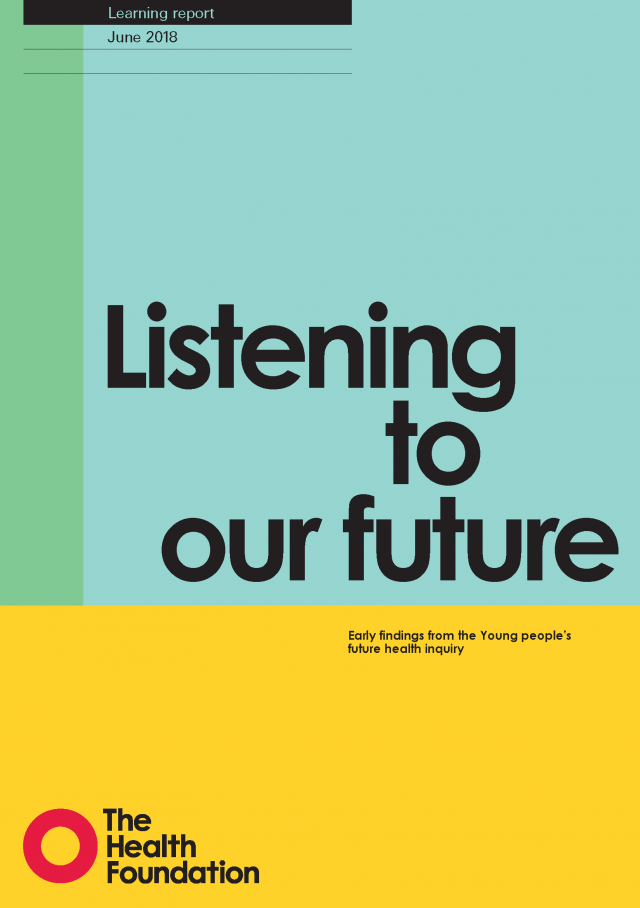Listening to our future Early findings from the Young people's future health inquiry
June 2018

Key points
When discussing what helped or hindered them in their transition to adulthood, young people identified four assets that were key to determining their current life experiences:
- appropriate skills and qualifications
- personal connections
- financial and practical support
- emotional support.
The Health Foundation’s Young people’s future health inquiry is a first-of-its-kind research and engagement project that aims to build an understanding of the influences affecting the future health of young people.
Listening to our future is the first report in the inquiry and shares the learnings from our engagement work. The Health Foundation commissioned Kantar Public, an independent social research agency, which partnered with Livity, a youth engagement specialist, to conduct an engagement exercise with young people living in the UK aged 22–26. The aim was to discover the factors that helped or hindered them in their transition to adulthood.
The Health Foundation also commissioned Opinion Matters, an insight and market research agency, to conduct an online survey of 2,000 young people aged 22–26 and gather their views on the challenges they faced.
The four assets that young people identified as key to determining their current life experiences are:
- Appropriate skills and qualifications: whether young people had acquired the academic or technical qualifications needed to pursue their preferred career.
- Personal connections: whether young people had confidence in themselves, along with whether they had access to social networks or mentors who were able to offer them appropriate advice and guidance on navigating the adult world.
- Financial and practical support: this could be direct financial support from their parents, being able to live at home at no cost with parents, as well as practical assistance such as help with childcare.
- Emotional support: having someone to talk to and be open and honest with, who supports their goals in life. This could include parents, partners and friends as well as mentors.
The engagement work also found that not all young people who participated in the work had these assets. Particular patterns of experience emerged in the young people who participated in the engagement work, with certain experiences reinforcing each other and with broad groups emerging.
These different groups of young people were already, at age 24–26, experiencing very different circumstances from each other in terms of their ability to secure a good home and employment, and build and maintain stable relationships with friends and family. Thus, it is likely that they will face different prospects for their long-term future health.
If you’d like us to keep in touch with news and updates from our young people’s future health inquiry, complete our sign up form.
Cite this publication
Further reading
Work with us
We look for talented and passionate individuals as everyone at the Health Foundation has an important role to play.
View current vacanciesThe Q community
Q is an initiative connecting people with improvement expertise across the UK.
Find out more


